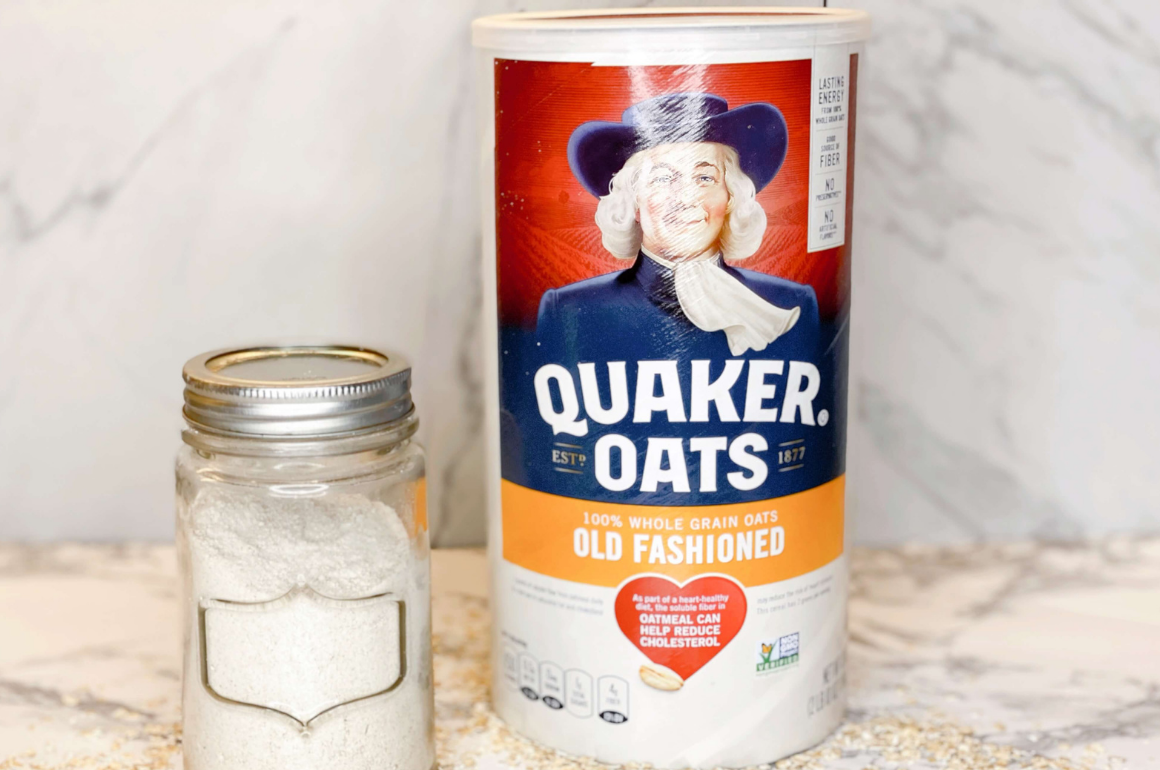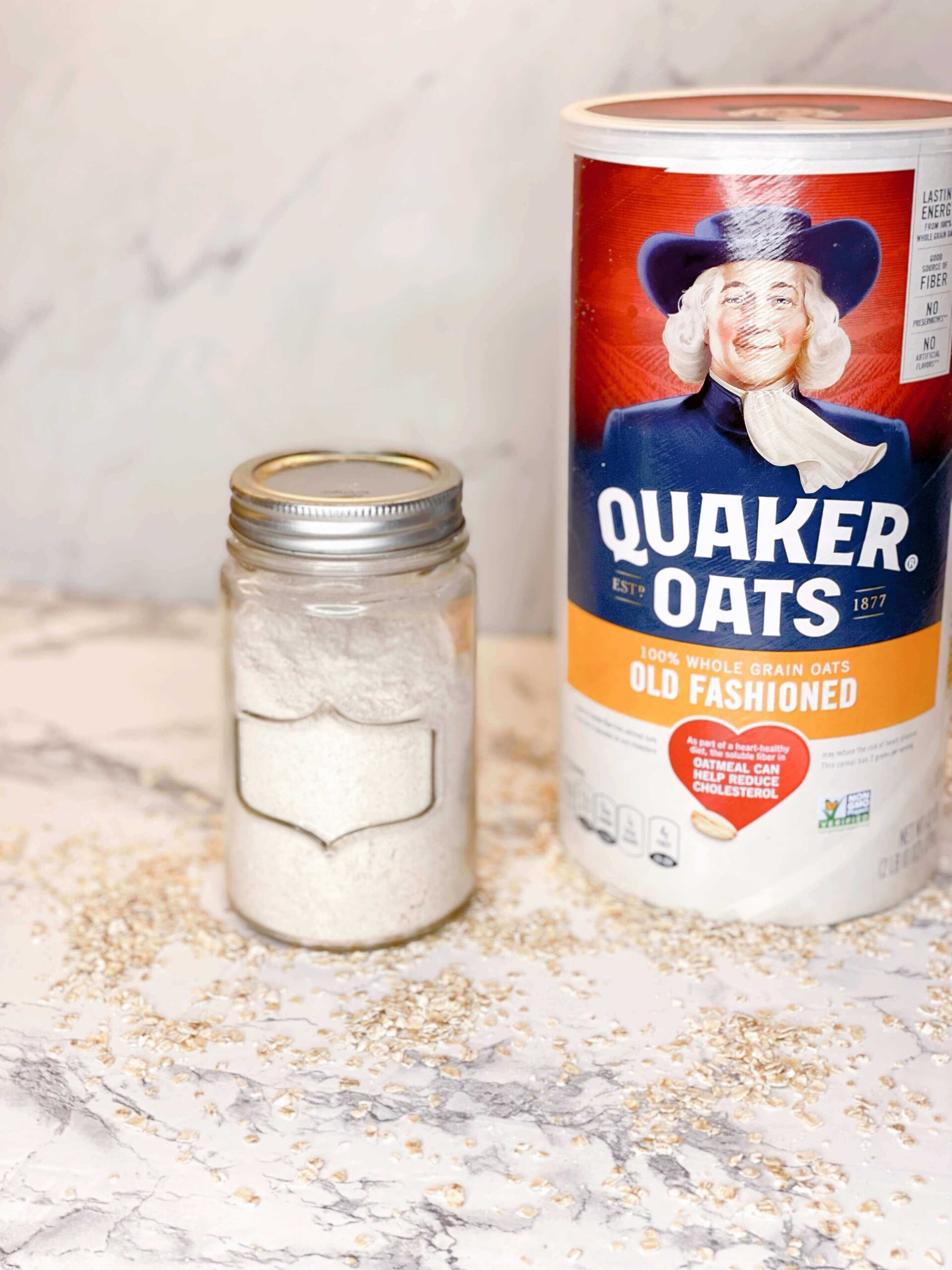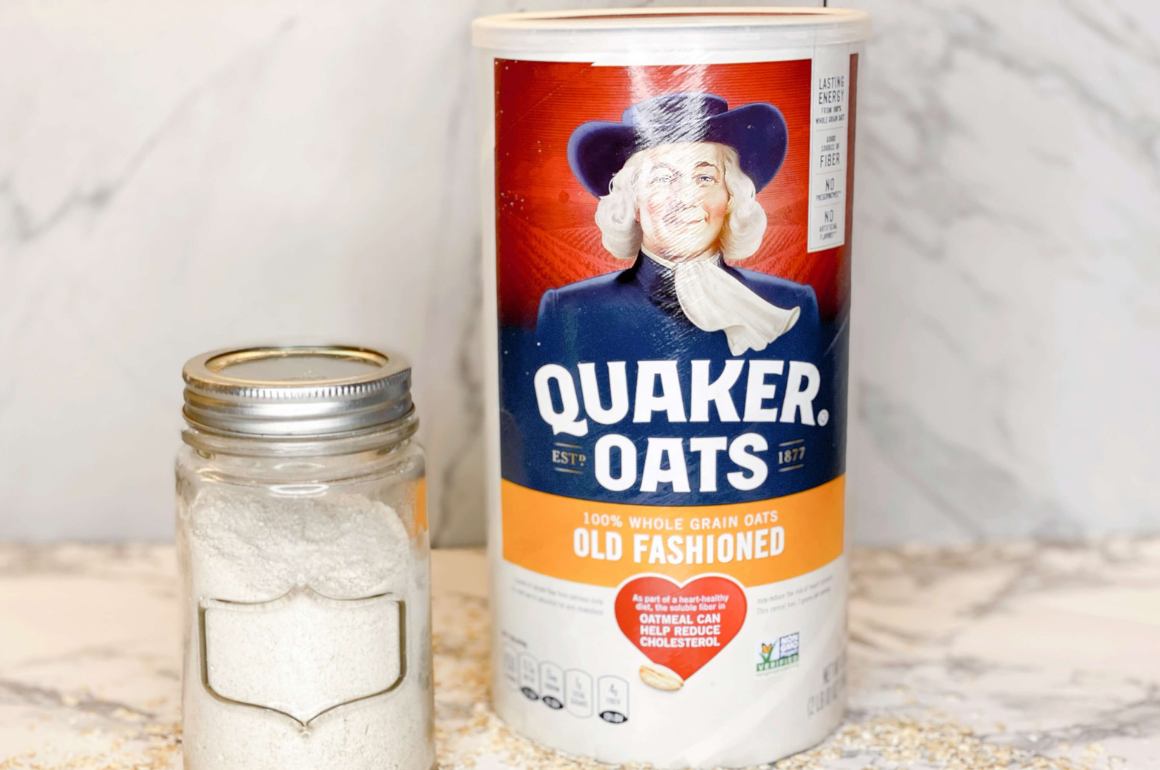

I am known to try a new health trend, as long as it doesn’t seem difficult or...well, gross. So this
entire oat fascination is right up my alley. Oat milk, oat flour, oatmeal, oats oats oats. As with
most healthier foods, oat products can be a bit pricey.
That’s my other caveat: it can’t be crazy expensive. So imagine my surprise when I learned that you can make oat flour using good old-fashioned oatmeal.
Yep, oat flour is simply a whole grain flour made from rolled oats. Sort of blew my mind when I
learned this fact.


Oat Flour Benefits
- Lots of fiber helps you feel fuller longer. (Code: you might not reach for snacks as often.)
It also helps keep your digestive tract sexy. - Lots of antioxidants help reduce the risk of heart disease and have anti-inflammatory (helps with asthma) and anti-itch benefits.
- Helps lower bad cholesterol.
- Regulates blood sugar control
- Contains a bunch of nutrients, like manganese, phosphorus, magnesium, iron, zinc, folate, and more.
BONUS: It's naturally gluten-free. (NOTE: If you have celiac, look for gluten-free certification.)
How to Substitute
Oat flour can be made from old-fashioned oats, quick-cooking oats, or steel-cut oats
and can be substituted for all-purpose flour. However, oat flour is lighter and so it’s not a
1:1 substitute.
Generally, 1 cup of all-purpose flour can be substituted for 1 ⅓ cup oat flour
Let’s Make It
-
- Add oats to a blender or food processor, filling halfway (maximum). One cup of steel cut oats will yield 2 cups of flour; the other oats are 1:1.
- 1 10-oz package regular size marshmallows (about 40) or 4 cups mini marshmallows
- Blend until fine. You shouldn’t see any whole oats.
- Store in an airtight container for up to 3 months.
Oat flour has a slightly sweeter taste than all-purpose flour, so your baked goods are about to level up. Start by substituting a little and see how you like it.
Don’t you feel healthier already?











Leave a Comment